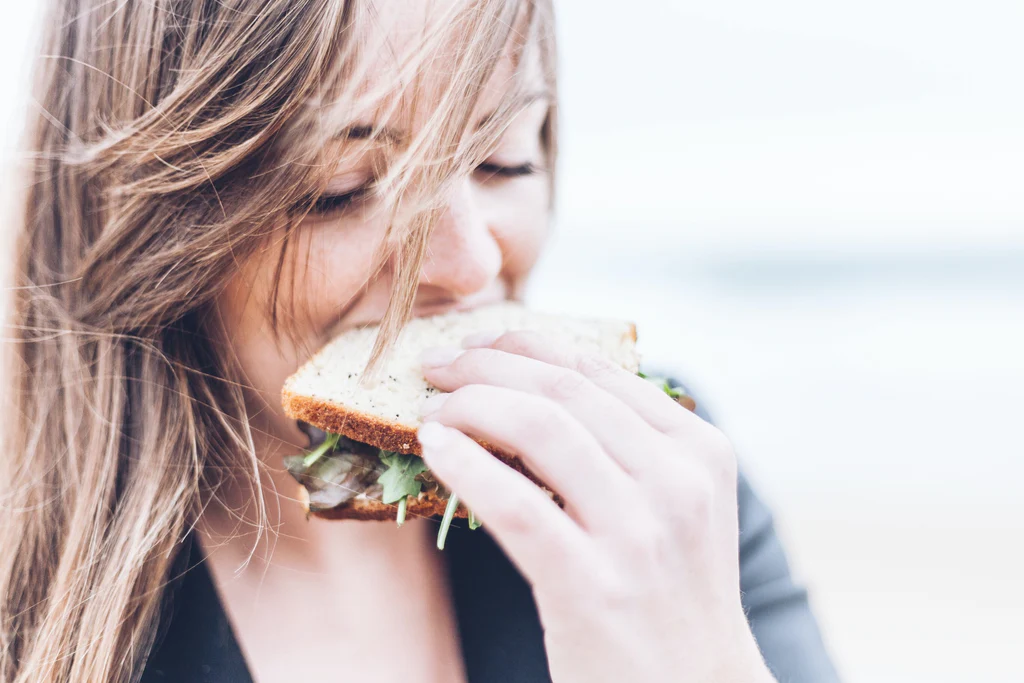How to Prepare for an Eating Contest?

Eating contests are a unique type of competition that involve consuming large amounts of food in a set amount of time.
They have been around for centuries, with records showing they were popular among ancient Greeks and Romans. Today, eating contests can range from small local events to massive international competitions.
Preparing for an eating contest requires more than just being able to eat quickly; it also requires physical and mental conditioning. To get ready physically, participants should increase their caloric intake over the weeks leading up to the event so that their bodies are used to larger quantities of food.
This will help them maintain energy throughout the competition and reduce any potential discomfort or stomach pain associated with eating too much at once.
Mentally preparing for an eating contest is also important. Participants need to be able to focus on speed-eating without getting distracted by other people or activities going on around them during the event.
It’s also beneficial if participants practice various techniques beforehand such as taking smaller bites and chewing faster, so they can maximize their performance during the actual contest day itself.
Contestants should make sure they are well hydrated before competing in order to keep themselves full while avoiding cramping or bloating due to dehydration during the contest period itself. Drinking water between rounds is essential in helping contestants recover quickly after each round has finished so that they can start again without feeling overly full or sluggish afterward due to all of the food consumed earlier on in the competition.
Getting Ready: Tips for Preparing for a Competitive Eating Contest
Getting ready for a competitive eating contest is no small task. It requires dedication, practice, and even a bit of strategizing in order to be successful. Here are some tips that can help you prepare for your upcoming eating competition.

It’s important to get familiar with the type of food being served at the contest. Knowing what will be on the menu ahead of time can help you better plan how much and what kind of food you need to eat in order to maximize your performance. You may want to practice eating similar foods so that your body becomes accustomed to them when a competing day arrives.
Don’t forget about pacing yourself during the competition. Eating too quickly or slowly could hurt your overall score – find a rhythm that works best for you and stick with it throughout the contest.
Practicing mindful chewing can help prevent choking while also helping break down food faster so that more can fit into your stomach more quicker. This is an especially important strategy if there is a time limit involved in the challenge as well as if there are specific rules governing how fast contestants must finish their meal within each round or heat.
Make sure not only to have enough energy but also to stay hydrated throughout all rounds of competition. Drinking plenty of water before and after each event will help keep digestion regular and ensure you feel energized from start to finish – this way nothing gets in between you and victory!
Building Endurance: How to Train Your Stomach for Competitive Eating
Competitive eating is a sport that requires both physical and mental strength. Those who are serious about competing in an eating contest should prepare their bodies to handle large amounts of food over a short period of time. Building endurance is key for successful competitive eaters, and there are several strategies they can use to train their stomachs for the challenge ahead.
First, competitors should practice portion control by gradually increasing the amount of food they consume at each meal. Begin with smaller portions, but as your body becomes accustomed to them increase the size until you feel comfortable consuming larger meals without feeling overly full or bloated afterward. This will also help familiarize your taste buds with different types of foods so you can stay on top of what’s being served during competitions.
Second, it’s important to develop good hydration habits before competition day arrives. Staying hydrated helps keep digestion moving quickly and ensures that your stomach won’t fill up too fast when competing against others who may be more experienced in this arena than you. Drink plenty of water after each meal while training as well – not only does it aid digestion but it also keeps your energy levels high throughout the process which will help give you an edge on competition day.
Conditioning exercises such as cardio or weightlifting can be beneficial in building up core strength prior to entering into a competitive eating event; these activities will help build muscle memory and make it easier for competitors to complete tasks quickly without tiring out easily during longer contests and stamina plays a big role in success.
Learning from the Pros: Advice from Experienced Competitive Eaters
Learning from the pros is one of the best ways to prepare for a competitive eating contest. Experienced competitive eaters have honed their skills and can provide invaluable advice on how to maximize success in an eating competition.
Here are some tips they suggest:
It is important to practice ahead of time by trying different foods and determining what works best for you in terms of speed and digestion. Experienced competitive eaters recommend consuming food with a liquid such as water or broth before, during, and after your meal.
This will help break down the food faster so that more can be consumed without feeling overly full or bloated. Competitors suggest focusing on technique while practicing – this includes chewing quickly but thoroughly before swallowing each bite as well as using certain methods like scooping up small bits of food into a spoonful instead of trying to take big bites at once.
In addition to these tips from veteran eaters, research suggests that exercise can also help increase performance during a contest. Building endurance through aerobic activities like running or cycling helps develop better breathing techniques which could lead to improved digestion during contests due to increased oxygen intake. Similarly, strength training exercises may also benefit athletes since having greater muscle mass increases stomach capacity – leading contestants toward higher scores.
Eating Strategies: The Best Techniques for Competitive Eating and Cheat Days
Eating contests can be both thrilling and challenging. Contestants need to be in the right frame of mind, prepared with the proper strategy, and have a well-defined plan if they want to win. Fortunately, there are some tried-and-true techniques that competitive eaters use to ensure success.
The first step is determining your eating capacity and developing an appropriate eating strategy for the specific contest you will be entering. If it’s an all-you-can-eat competition, then a slower but steady approach may work best.
However, if it’s a timed challenge then speed is essential and quick bites are key to winning; this requires knowing what types of foods can be eaten quickly without compromising taste or texture too much. Knowing about food digestion times will help strategize which foods should come first to maximize consumption while staying within time limits – such as protein takes longer than carbohydrates so carbs should go down first.
Finally – although not strictly part of an effective eating technique – competitors should also make sure they take cheat days during their preparation period: indulging in one’s favorite treats now and again helps maintain motivation levels when training for a big event like an eating competition. Plus making sure contestants get adequate rest each night before competing is crucial; being well rested allows them to focus on beating their opponents instead of feeling sluggish from lack of sleep.
Liquid and Solid Foods: What to Eat and Drink Before and During the Competition
For a successful eating contest, competitors must have the right fuel to keep their energy levels up. When it comes to deciding what to eat and drink before and during an eating competition, solids, and liquids can both be beneficial.
The night before the competition is when you should focus on getting all your solid foods in. Eating a large meal that consists of carbohydrates such as pasta or potatoes will give you sustained energy throughout the event. Proteins like steak or chicken are also important for building muscle strength, which can help propel you forward with each bite taken during the contest. Fruits and vegetables are important too; they provide essential vitamins, minerals, fiber, antioxidants, and other nutrients that will keep your body running optimally throughout the challenge.
When it comes time for drinks during the contest itself (if allowed by rule), water should be your go-to choice – but only if it doesn’t fill up your stomach too quickly. The goal is to stay hydrated without taking in any extra bulk that could slow down digestion or make you feel overly full while competing against others who may still be chowing down at rapid speeds. Sports drinks containing electrolytes can also help replace those lost through sweat due to intense physical activity as well as boost overall performance during endurance competitions where participants might need some extra sugar for additional energy levels late into the competition rounds. Ultimately though: choose wisely – liquid intake needs proper timing so that one does not become sluggish halfway through an eating contest!

After the Contest: How to Care for Your Jaw and Stomach Post-Competition
Once the eating competition is over, it is important to take care of your body to avoid any potential adverse side effects. Though it may seem counterintuitive after an intense eating contest, re-fuelling and rest are essential for proper post-competition recovery.
Taking time to relax and let your jaw muscles recuperate will help keep discomfort from developing into a more serious issue. To start, some light stretching can go a long way toward releasing built-up tension in the jaw area. Applying ice or heat packs can also be beneficial for reducing swelling or soothing soreness if necessary.
Massaging the affected areas with creams containing menthol or eucalyptus can help stimulate circulation while providing relief at the same time. Properly replenishing energy stores by consuming nutrient-dense foods such as lean proteins and complex carbohydrates like sweet potatoes should be part of any post-contest meal plan. Also, make sure you’re getting enough vitamins B6 and B12 which have been shown to assist with muscle fatigue recovery; these vitamins can be found naturally in foods such as salmon, tuna, and eggs but they are also available as supplements if needed.
Finally drinking plenty of water throughout this period is crucial for avoiding dehydration due to increased perspiration during competitions – so don’t forget about hydration.
Overall following these steps should help ensure that competitors remain healthy after participating in an eating competition so they’re ready for their next challenge.
Final Thoughts
Preparing for an eating contest takes more than just wanting to eat a lot of food. You’ll need to work on expanding your stomach, choosing the right foods, and staying hydrated without drinking large amounts of water. Eating two hot dogs or breaking a world record may sound tempting, but it takes discipline and dedication to adhere to a healthy and effective preparation routine. Top competitive eaters like Joey Chestnut and Matt Stonie know that staring down a plate of fibrous broccoli or an extra large burger takes mental and physical strength.

With the right workout routine, empty stomach, and 1-2 big meals leading up to the contest, you may be able to take on the challenge and achieve a top-10 finish. So, try to give it your all, but listen to your body, and don’t forget to go to the bathroom before the competition!
Questions & Answers
How can I expand my stomach to prepare for an eating contest?
To expand your stomach for an eating contest, you should gradually increase the amount of food you eat over time. Eating larger portions of food regularly will help stretch your stomach muscles and increase your capacity for food.
What are some tips for eating a lot of food during a food challenge?
To eat a lot of food during a food challenge, you should start eating slowly and gradually increase your speed as you go. Competitive eaters also recommend using hot water to help soften food and dunking food in water or beverage to make it easier to swallow. You may also want to avoid low-calorie or high-fiber foods, as they can fill you up quickly and make it difficult to eat a large amount of food.
What should I eat before an eating contest?
Before an eating contest, you should eat a light breakfast such as a salad or quinoa to help you feel full and provide some energy. You may also want to opt for easily digestible foods such as broccoli stems, cabbage, or salad bar items that are high in fiber.
How much water should I drink before and during an eating contest?
It’s important to stay hydrated during an eating contest, but you don’t want to drink too much water or you may feel too full to eat. Competitive eaters suggest sipping on water throughout the contest and drinking an extra liter or so in the days leading up to the competition to ensure your digestive system is working efficiently. However, be careful not to drink too much water during the contest, as this could disqualify you. Also, you may want to avoid carbonated beverages as they can make you feel bloated.

